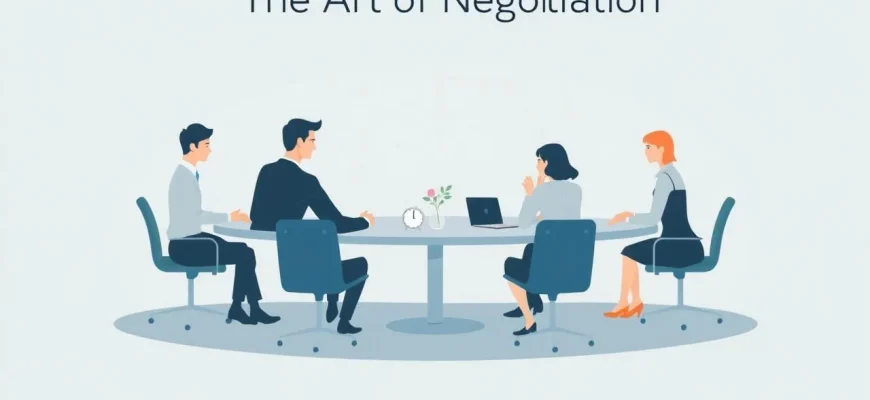Business negotiations can be a high-stakes game of strategy, psychology, and power dynamics. These films delve into the world of corporate battles, showcasing the tension, drama, and sometimes the moral dilemmas that come with high-level deal-making. Whether you're a business enthusiast or simply love a good drama, these films offer a fascinating look at the art of negotiation.

Wall Street (1987)
Description: Gordon Gekko's famous line "Greed is good" sets the tone for this film, which examines the cutthroat world of corporate raiders and the negotiations that drive their empire-building.
Fact: Michael Douglas won an Academy Award for his portrayal of Gordon Gekko, and the character has become an iconic figure in popular culture.
 Watch Now
Watch Now 
The Insider (1999)
Description: While primarily a whistleblower story, this film includes intense negotiations between a tobacco company executive and a journalist, showcasing the power dynamics and ethical considerations in corporate negotiations.
Fact: The film was nominated for seven Academy Awards, including Best Picture, and is based on a true story from a 1996 Vanity Fair article.
 Watch Now
Watch Now 
Boiler Room (2000)
Description: This film explores the world of a brokerage firm where young brokers engage in high-pressure sales tactics and negotiations to sell penny stocks. It's a gritty look at the dark side of finance.
Fact: The film was inspired by real-life events and includes cameos from actual stockbrokers.
 Watch Now
Watch Now 
The Deal (2008)
Description: A film about a former Wall Street executive who must negotiate his way back into the financial world after a scandal. It's a story of redemption and the high stakes of deal-making.
Fact: The film was shot in just 18 days, and much of the dialogue was improvised to capture the real-time feel of the crisis.
 Watch Now
Watch Now 
The Wolf of Wall Street (2013)
Description: While not solely about negotiations, this film showcases the aggressive sales tactics and the behind-the-scenes deal-making of Jordan Belfort's brokerage firm. It's a wild ride through the excesses of Wall Street.
Fact: The film holds the record for the most use of the F-word in a mainstream movie, with over 500 instances.
 Watch Now
Watch Now 
The Company Men (2010)
Description: This film focuses on the aftermath of corporate downsizing and the personal negotiations employees must undertake to survive in a harsh economic climate. It's a poignant look at the human side of business decisions.
Fact: The film was inspired by the real-life experiences of its writer-director, John Wells, who worked in the corporate world before turning to filmmaking.
 Watch Now
Watch Now 
The Big Short (2015)
Description: This film dives into the complexities of the 2008 financial crisis, where characters engage in intense negotiations to profit from the impending market crash. It's a masterclass in understanding the stakes of financial negotiations.
Fact: The film breaks the fourth wall to explain complex financial terms, making it both educational and entertaining. It also features real-life figures like Michael Burry and Steve Eisman.
 Watch Now
Watch Now 
Margin Call (2011)
Description: Set during the initial stages of the 2008 financial crisis, this film captures the internal negotiations and decisions made by a Wall Street investment bank as it faces potential collapse. The tension is palpable as characters navigate through ethical and financial dilemmas.
Fact: The film was shot in just 17 days, and much of the dialogue was improvised to capture the real-time feel of the crisis.
 Watch Now
Watch Now 
Too Big to Fail (2011)
Description: This HBO film dramatizes the events leading up to and during the 2008 financial crisis, focusing on the negotiations and decisions made by key figures in government and finance to prevent a global economic meltdown.
Fact: The film was based on the book by Andrew Ross Sorkin and features a star-studded cast including William Hurt and Paul Giamatti.
 Watch Now
Watch Now 
The Bank (2001)
Description: An Australian film that explores the ethical negotiations between a bank CEO and a mathematician who discovers a flaw in the bank's risk management system. It's a thrilling game of cat and mouse.
Fact: The film was one of the first to explore the concept of financial algorithms and their potential misuse.
 30 Days Free
30 Days Free 








